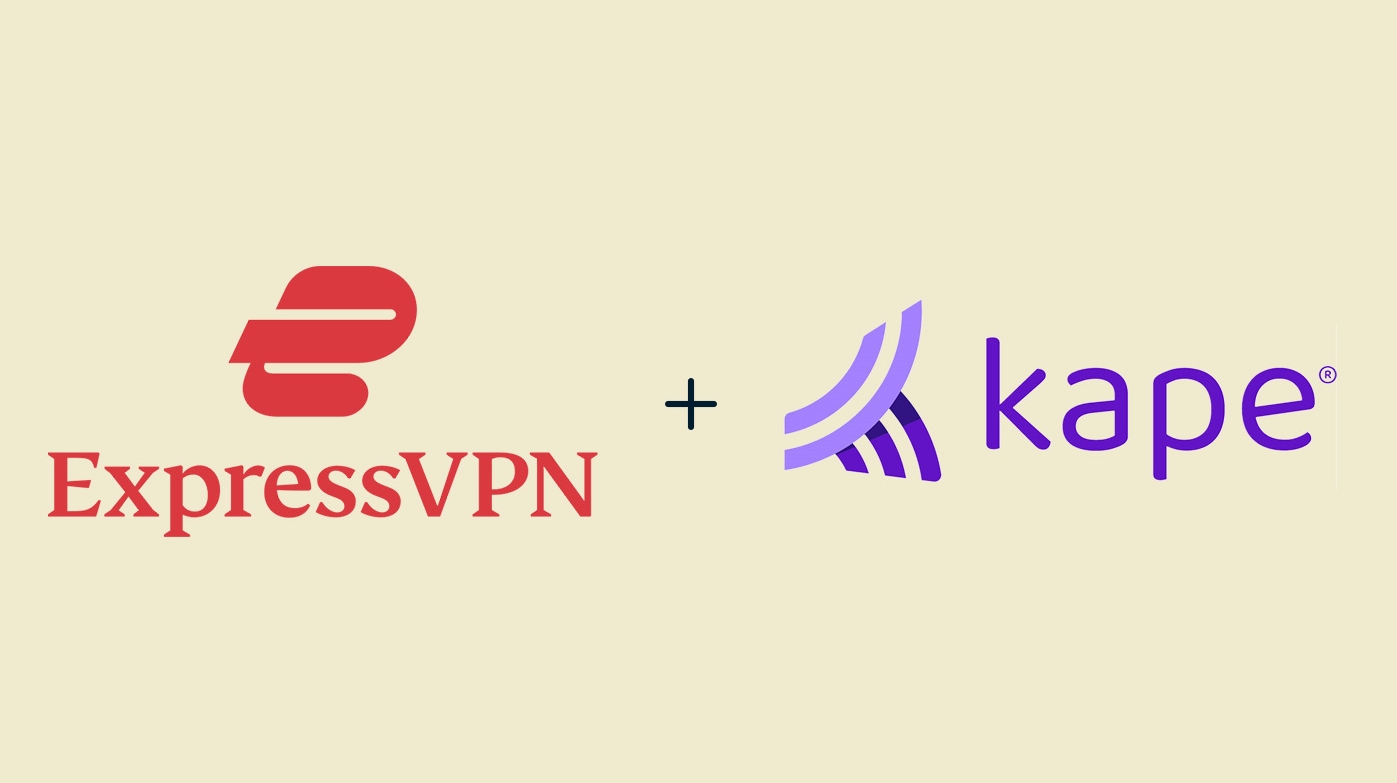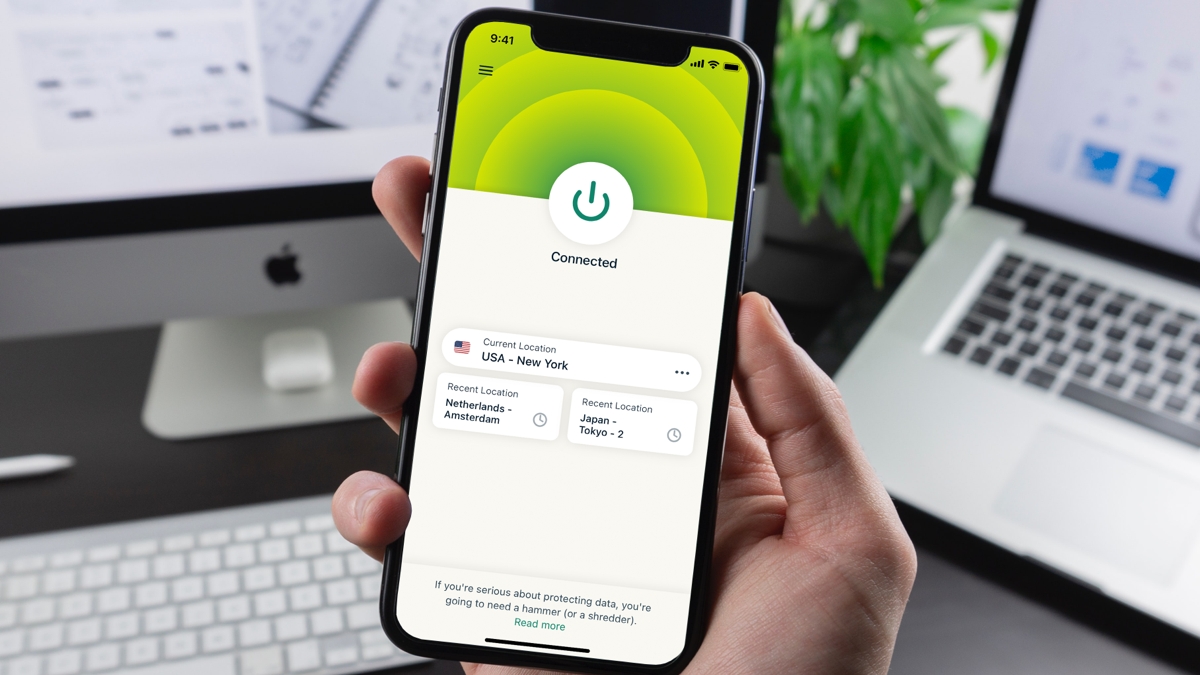ExpressVPN to join Kape in VPN industry's largest ever deal
New privacy giant forged by near $1 billion move

Kape Technologies and ExpressVPN have agreed to join forces in a $936 million acquisition.
The figure makes it the largest deal on record in the VPN industry and one of the largest in the consumer privacy space in the past decade.
ExpressVPN will continue to operate as an independent service (the world's best VPN in our most recent testing), with its existing team and leadership. It joins CyberGhost, Private Internet Access (PIA), and ZenMate, which have also been run as separate brands under the Kape umbrella. Cumulatively, the services have over 6 million paying subscribers, based on latest numbers.
- Stay safe online with the best antivirus around
- Take a look at our collection of the best proxy services
- These are the best privacy tools for anonymous browsing
“With access to greater capital and resources as part of Kape, we’re excited to be able to accelerate our product development, deliver even more innovation to our users, and protect them from a wider range of threats," ExpressVPN co-founder Dan Pomerantz said.
In a prior interview with TechRadar, Pomerantz had spoken of the VPN industry “morphing into the industry of protecting users’ privacy and security online”, with VPN as just “one of many technologies used to protect users”.
In recent months, the company has discussed upcoming features that go beyond VPN technology to boost user privacy and security.
What Kape and ExpressVPN have in mind after this deal however seems to go a lot further, with Kape CEO Ido Erlichman also framing the deal as being part of a bigger move:
Are you a pro? Subscribe to our newsletter
Sign up to the TechRadar Pro newsletter to get all the top news, opinion, features and guidance your business needs to succeed!
“With ExpressVPN to join the Kape family of world-leading privacy and security brands - together, we will have the vision, talent, and resources to take the industry to the next level," he noted.
Massive industry growth
As we wrote recently few areas of the technology world have grown as quickly as the VPN industry.
This growth has seen a number of recent significant moves in recent years: J2Global, owner of IGN and PCMag, acquired six VPN providers in two years while McAfee bought TunnelBear in 2018. Tech giants like Google and Apple have also been dipping their toes into the space, in addition to other forays into the privacy sphere.
With other elements of the cybersecurity industry heating up in parallel, as reflected in the multi-billion dollar merger of NortonLifeLock and Avast, the consumer digital protection space will definitely be one to watch in the coming years and scale will matter.

A (near) VPN unicorn
Even amidst all these moves, the size of this deal stands out. In contrast, Kape’s acquisition of another leading VPN provider, Private Internet Access, less than two years ago cost about a tenth: $95.5 million. What made ExpressVPN stand out and be valued at unicorn levels?
Erlichman credits the company’s “pursuit of excellence and innovation,” and Kape’s press release references ExpressVPN’s development of Lightway and TrustedServer, among other initiatives that “advance the state of privacy technology”.
Indeed, Lightway has made ExpressVPN unique among VPN providers in having developed and open-sourced its own protocol, rather than building upon an existing one. The company claims significantly faster speeds and higher reliability compared to older protocols, and our speed tests have indeed shown that Lightway has enabled ExpressVPN’s speeds to rout competitors.
The announcement of this deal also gives us the first detailed look into ExpressVPN’s business figures, which it had hitherto kept under wraps as a private company. Kape’s statement to the London Stock Exchange revealed that ExpressVPN has over three million subscribers, of which over 40% are in North America, and generated revenues of approximately $279.4 million in 2020, up 37% from 2019. In comparison, Kape’s 2020 annual report details 2.52 million subscribers and revenues of $122.2 million; this means that ExpressVPN’s ARPU (average revenue per user) is between $70 and $93 which compares well with Kape’s $48.50.
With ExpressVPN’s market-leading position and premium brand, it’s certainly no surprise that Kape had set its eyes on the company as an acquisition target. Together with the ExpressVPN brand, Kape is also acquiring an operationally skilful team with a history of strong execution. Kape’s statement also noted that ExpressVPN’s co-founders will continue to manage the business’s operations.
The future of ExpressVPN
When asked about the impact the merger would have, ExpressVPN assured us it would largely be business as usual, with Pomerantz noting that “ExpressVPN will continue to be run as a independent service, by our existing team, and have its own product development roadmap, which can now be accelerated with Kape’s backing”.
ExpressVPN also clarified that while it is being acquired by a London Stock Exchange-listed company, the service will still be operated via a British Virgin Islands (BVI) company and subject to BVI law.
This would appear to be keeping in line with how CyberGhost and PIA have remained separate services, operating in different jurisdictions, even two years after the latter joined the former as a Kape brand. Kape’s 2020 annual report states that as of late 2020 they had retained 97% of the original PIA team (excluding pre planned departures).
As part of a larger corporate entity serving public shareholders, ExpressVPN’s approach to serving customers could nevertheless change over the course of time, as the brand will cease to be wholly independent.
Pomerantz claimed that nothing would change for its millions of customers. “Everything our users have come to know and love about ExpressVPN will only continue to improve. For over 12 years, we’ve built our service and our team with a laser focus on our mission of enabling users to take back control of their digital experience, and that’s certainly not going to change.”
What’s next for privacy
There’s no doubt that privacy is becoming a forefront concern for consumers, exacerbated by the pandemic. Recent research from Truata found that 78% of global consumers say they have taken action to avoid sharing their personal data with brands. Yet protecting one’s privacy online is still complex and opaque, with 65% of respondents admitting they still don’t know exactly what data, and how much, is being collected by brands.
In the past few years, tech companies big and small have been scrambling to reposition themselves to cater to this exponentially growing market - most famously Apple with its “What happens on your iPhone stays on your iPhone” messaging. In 2019, Facebook’s Mark Zuckerberg described the company’s vision of a “privacy-focused” future for the company.
However, such moves are often treated with skepticism (in some cases, rightly so) when those companies’ core businesses benefit from data collection and mining, whereas VPN providers like Private Internet Access and ExpressVPN have been in the business of privacy from day one. While it’s not clear yet what it will mean for this new Kape to take privacy protection “to the next level”, they may well be particularly well positioned to take advantage of the growth in demand for such services.
Competition heating up
It’s no secret that two of the most well-known consumer VPN brands are ExpressVPN and NordVPN (ranked #1 and #2, respectively, on our best VPN list). The two VPN juggernauts have been in competition against each other for ages, and we’re excited to see how this battle will continue to play out - especially with the new financial boost from Kape.
NordVPN and ExpressVPN have long been hot on each other’s heels. For example, when ExpressVPN rolled out its TrustedServer technology (server platform that runs only in RAM, among other features) in 2019, NordVPN followed suit with RAM-based servers a year later as well. Both VPN heavy hitters have also had their respective no-logging policies audited by PwC.
With ExpressVPN’s latest move to merge with Kape, time will tell if NordVPN will follow suit with similar plans of their own. Merge with another privacy or security-focussed company? IPO? Your move, NordVPN. Could the new J2Global, already owner of six VPN companies, make a bold statement?
Our crystal ball tells us that investments in the consumer privacy and VPN space will only continue to grow in the coming years, and we can expect more headline-grabbing stories from the industry. Norton might start looking for a follow-up acquisition in the VPN industry after the Avast deal to continue their growth streak. Mozilla is already utilizing Mullvad’s servers for Mozilla VPN - could a deeper integration or even potential acquisition be a next logical move? The VPN industry is definitely one to keep our eyes on, and we are anxious to see what comes next.
- We’ve also rounded up the best business VPN services

Désiré has been musing and writing about technology during a career spanning four decades. He dabbled in website builders and web hosting when DHTML and frames were in vogue and started narrating about the impact of technology on society just before the start of the Y2K hysteria at the turn of the last millennium.